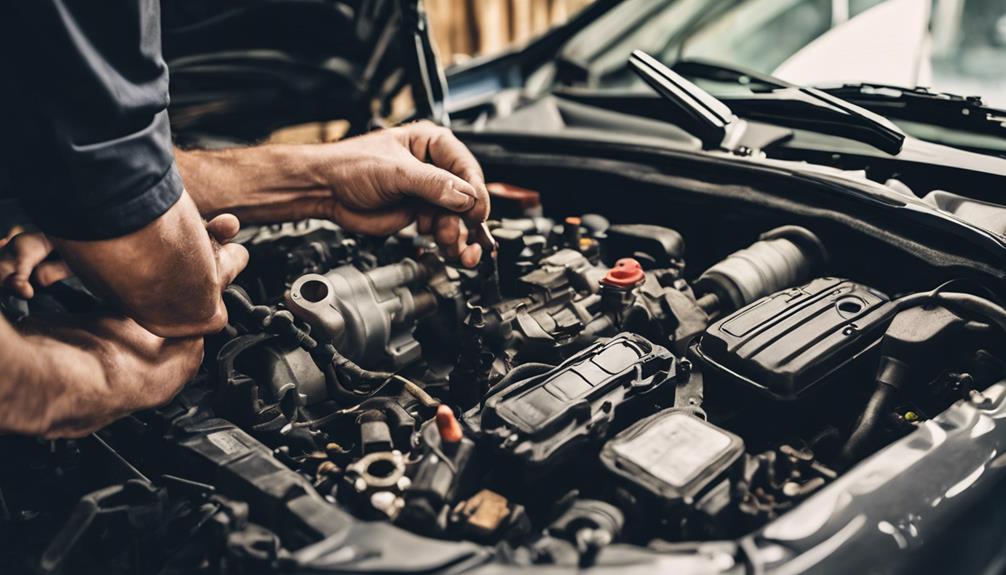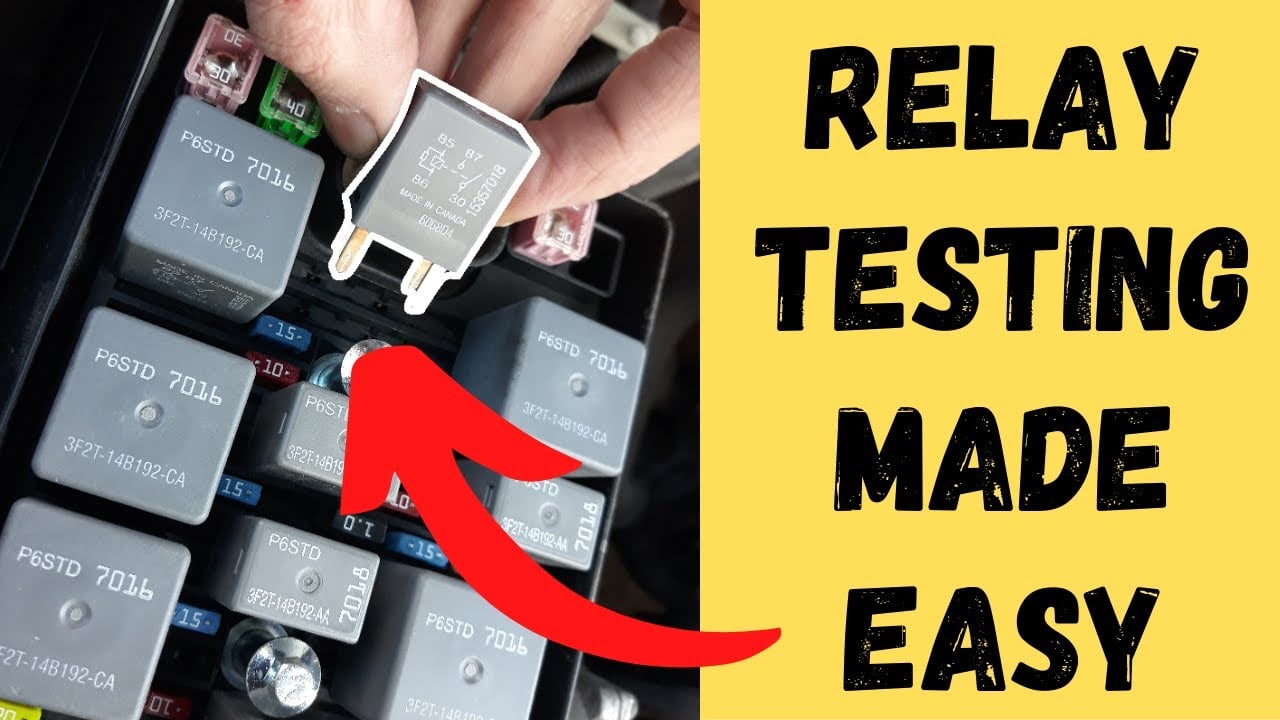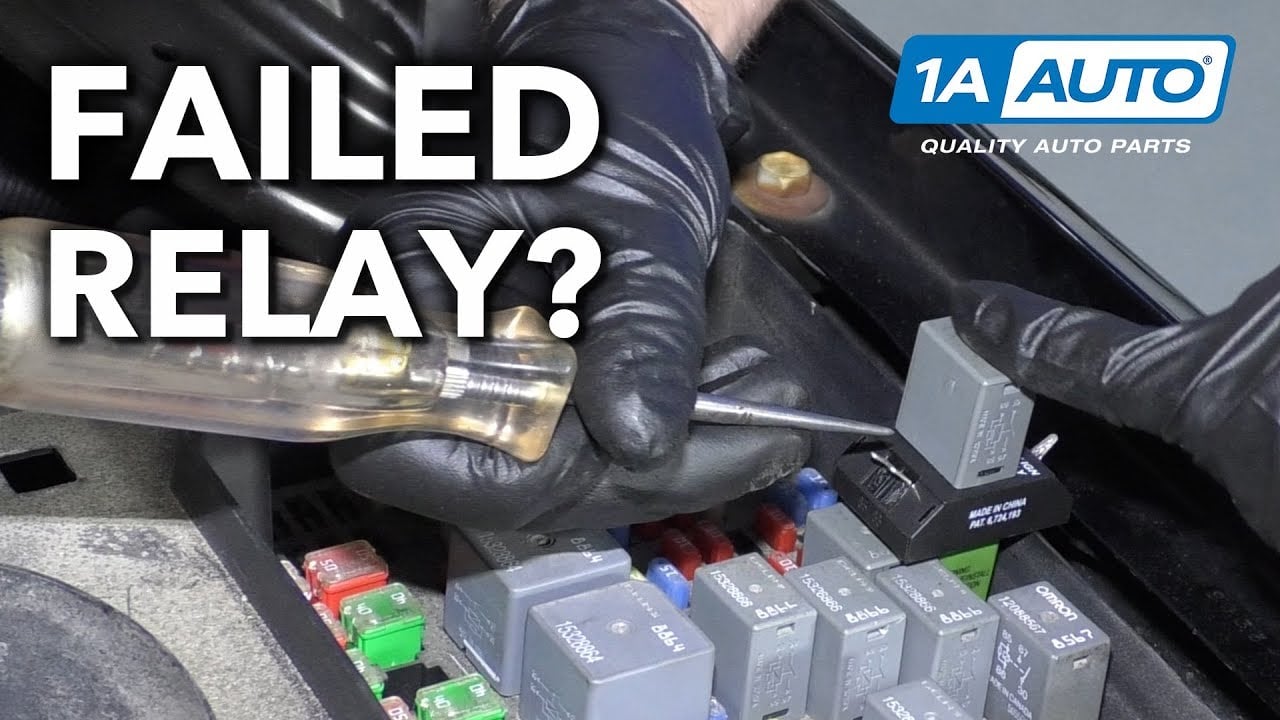To fix ignition issues in your Toyota Yaris, start by inspecting the fuse and relay pack. Confirm the 20 amp fuse isn't blown and test the integrated relay pack with a multimeter. Next, check the EFI relay for correct resistance levels. Verify the Body Control Unit's functionality by checking related fuses and relays. Measure the ignition coil resistance with a multimeter, comparing results to your manual's specifications. Finally, replace any faulty relays, especially within the integrated relay pack to resolve ignition problems effectively. By following these steps, you'll address common causes and learn more detailed fixes.
Key Takeaways
- Inspect and replace the 20 amp fuse in the fuse and relay pack if blown.
- Test the EFI relay's resistance with a multimeter and replace if outside the 100-300 ohms range.
- Verify and replace malfunctioning fuses and relays in the Body Control Unit.
- Measure ignition coil resistance and compare with the manufacturer's specifications, replacing if necessary.
- Identify and replace faulty relays within the integrated relay pack to ensure proper ignition function.
Inspect Fuse and Relay Pack
Start by checking the 20 amp fuse in your Toyota Yaris to diagnose any ignition issues. This fuse is essential for the ignition system's functionality. A blown fuse can prevent your car from starting, so make sure it's in good working order. If it's damaged, replace it immediately to see if this resolves the problem.
Next, focus on the integrated relay pack. This pack typically contains 3-4 relays that should be tested for functionality. A faulty relay can lead to ignition issues, so it's important to validate their condition. Use a multimeter to measure resistance across the relay pins. You should find a resistance of 100-300 ohms. If the reading is outside this range, the relay might be defective.
Checking these components empowers you to identify and resolve ignition problems effectively. If any relays are found to be faulty, consider replacing them. Doing so can prevent further issues and ensure your Yaris starts reliably. Remember, maintaining control over your vehicle's ignition system involves regular checks and timely replacements of these critical components. This proactive approach keeps your Toyota Yaris running smoothly and reliably.
Test EFI Relay
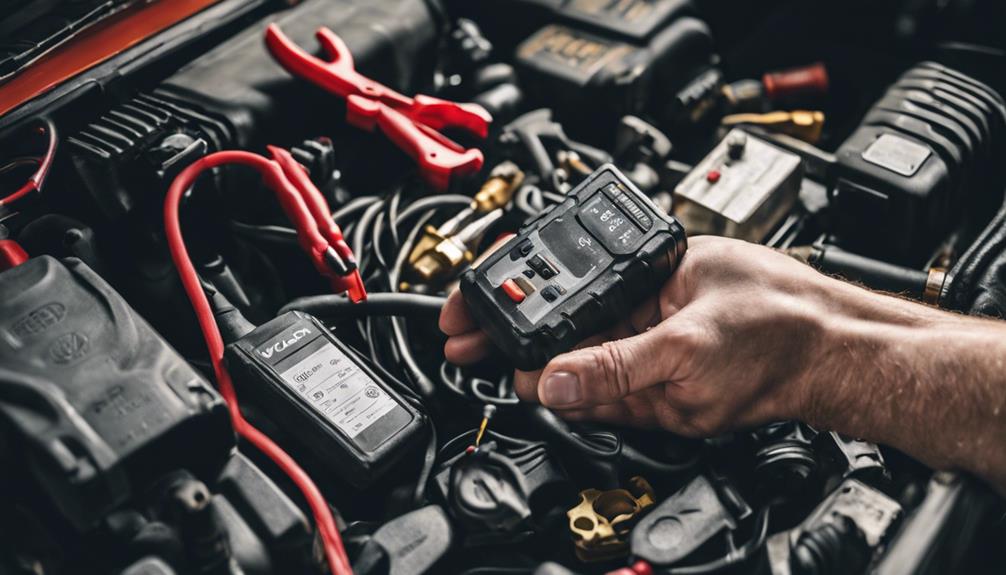
To guarantee your Toyota Yaris's fuel pump activates correctly, you need to test the EFI relay for proper resistance. Start by locating the EFI relay in the fuse and relay pack, usually found in the engine bay. You'll want a multimeter for this task. Remove the relay and identify the specific pins you need to measure resistance across.
Set your multimeter to the ohms setting and check the resistance between the designated pins. You should see a reading between 100 and 300 ohms. If the resistance falls outside this range, your EFI relay could be faulty, which might be causing your starting issues.
A functioning EFI relay is essential for the fuel pump to receive power, allowing your engine to start smoothly. If your multimeter indicates a problem, replacing the relay is a straightforward fix. Make sure you use a compatible EFI relay for your Toyota Yaris to avoid further complications.
Check Body Control Unit
Verifying the Body Control Unit (BCU) is functioning correctly can help diagnose and resolve ignition issues in your Toyota Yaris. The BCU, located near the fuse panel under the bonnet, controls various electrical systems, including the ignition system. To start, you'll need to confirm the functionality of relays and fuses associated with the BCU.
First, check all relevant fuses to make sure none are blown. A blown fuse can disrupt the positive voltage required for ignition. Replace any defective fuses immediately. Next, inspect the relays. You can test them using a multimeter to ensure they're operating as expected. If a relay is malfunctioning, it could be the root cause of your ignition problems.
Understanding the BCU's role in your vehicle can pinpoint starting issues more accurately. If the BCU isn't functioning correctly, it might prevent the ignition system from receiving the necessary signals, causing your Yaris not to start. By thoroughly testing the BCU, you can rule out any BCU-related issues and narrow down the potential culprits to specific ignition components. This targeted approach saves you time and ensures you're addressing the right problems efficiently.
Measure Coil Resistance
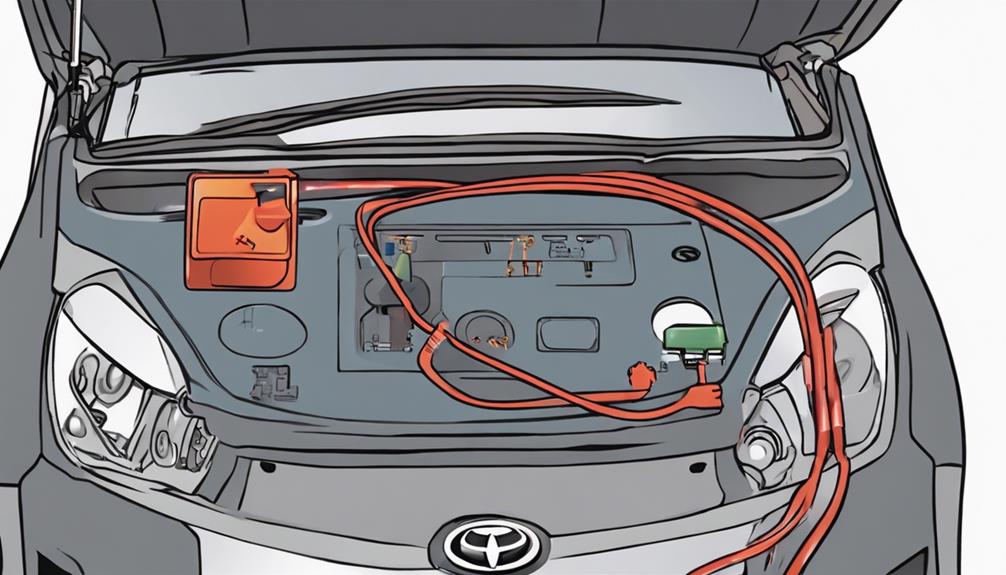
After verifying the BCU, the next step is to measure the coil resistance to guarantee your ignition system operates correctly. Accurate coil resistance readings are important for diagnosing ignition issues in your Toyota Yaris. By focusing on this task, you can avoid unnecessary BCU replacements and save both time and money.
To measure the coil resistance, follow these steps:
- Locate the Ignition Coil: Find the ignition coil in your Toyota Yaris. It's typically near the engine and connected to the spark plugs.
- Use a Multimeter: Set your multimeter to the ohms (Ω) setting to measure resistance. Make sure it's zeroed out before taking readings.
- Check Specifications: Refer to your vehicle's manual for the specific resistance range for your ignition coil. It usually falls between a certain ohm range.
- Measure Primary and Secondary Coils: Measure resistance at both the primary and secondary coil points. This ensures a thorough check.
- Evaluate Readings: Compare your measurements with the manufacturer's specifications. Discrepancies indicate potential issues with the ignition coil.
Understanding the role of specific relay points, including the COPN relay, is important to get accurate coil resistance readings. By mastering this process, you maintain control over your vehicle's ignition system, ensuring its top performance.
Replace Faulty Relays
Given the critical role relays play in your Toyota Yaris's ignition system, identifying and replacing faulty relays can swiftly resolve many starting issues. Integrated relay packs in your Yaris typically contain 3-4 relays essential for ignition functions. When your vehicle won't start, one of the first things you should do is check these relays.
To diagnose potential problems, measure the resistance across the relay pins. You're looking for a resistance reading between 100-300 ohms. If the reading falls outside this range, the relay is likely faulty and needs replacement. Specifically, the Electronic Fuel Injection (EFI) relay is vital—make sure to check its resistance carefully.
Once you've identified a faulty relay, replacing it can often restore your Yaris's ignition functionality. This targeted approach saves you time and money, avoiding unnecessary repairs. The integrated relay pack can be accessed relatively easily, allowing you to swap out the faulty relay without much hassle.
Frequently Asked Questions
How Long Does It Take to Repair a Toyota Yaris Ignition Issue?
Repairing a Toyota Yaris ignition issue usually takes between 1 to 3 hours. Simple fixes like replacing a fuse or relay can be done quickly, but more complex problems might require additional time. Diagnosis and troubleshooting add to the overall duration. Availability of parts and your mechanic's expertise also play a role. To get a precise time estimate, consult with a professional mechanic. Taking charge of the situation guarantees efficient repair.
What Are the Symptoms of a Failing Ignition Switch in a Toyota Yaris?
You'll notice several symptoms if your Toyota Yaris has a failing ignition switch. You might have trouble starting the car, experience intermittent power loss, or see issues with accessories like lights and the radio. The engine could stall or shut off unexpectedly, and the key may get stuck or be hard to turn. Dashboard lights might flicker, and electrical malfunctions can occur. Address these issues promptly to stay in control.
Can a Dead Battery Cause Ignition Problems in a Toyota Yaris?
Absolutely, a dead battery can cause ignition problems in your Toyota Yaris. Imagine you're ready to go, but your car won't start—just dim lights and a frustrating clicking sound. That's your battery failing to deliver power to the ignition system. Regular maintenance and checking the battery's health can save you from these headaches. So, make sure you're always in control by keeping that battery in top shape.
How Much Does It Typically Cost to Fix Ignition Problems in a Toyota Yaris?
Fixing ignition problems in your Toyota Yaris typically costs between $150 and $800, depending on the issue. You might deal with faulty relays, wiring issues, or a bad ignition switch. While DIY repairs can save you money, complex problems might need professional help. Diagnostic fees range from $50 to $150. For cost-effective solutions, consider buying parts from a wrecker or salvage yard.
Are There Any Recommended Preventative Maintenance Tips for Toyota Yaris Ignition Systems?
Absolutely, there are several preventative maintenance tips you can follow. Regularly inspect and clean spark plugs, coils, and wires to keep your ignition system in top shape. Use high-quality fuel to avoid clogs and build-up. If your ignition switch shows wear or malfunctions, replace it promptly. Watch for warning signs like engine misfires or stalling. Finally, consult your vehicle manual for specific maintenance schedules and procedures.

